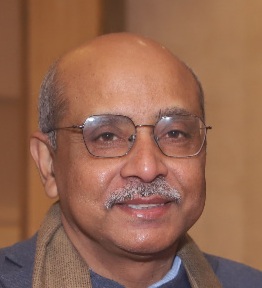CGHE series on The Critical Economics of Higher Education – webinar 2: Regulating the teacher: is there any alternative to regulation?
- Saumen Chattopadhyay, Jawaharlal Nehru University
Event Materials
This event is now archived and we are pleased to provide the following event media and assets, along with the original event overview.
Application of economic principles to the academia is based on the assumption that the university functions in a manner which is hardly different from the world of commodity production the economists deal with. This entails not only treatment of education as a commodity, but commodification of education as higher education policies are informed by economic theories. This argument can be extended to the students and the teachers who are treated increasingly as consumers and workers respectively. The teachers who constitute the central position in the functioning of a university are the main targets of higher education reform world over. The performances of the teachers are now subjected to accounting and auditing in the name of achieving efficiency in the use of resources at the disposal of both the teachers and the university. The teachers who are supposed to remain intrinsically motivated in their academic engagements are therefore subjected to external surveillance. However, this application of corporate principles in regulating the conduct and performances of the teachers arguably to curtail abuse of teacher autonomy and at the same time, to make the teachers accountable to a set of deliverables determined by the university and/or the state, has come at a cost. The teachers have complied with the regulations mostly in a ritualistic manner which has further weakened the tenuous relationship between efficiency and quality. The functioning of a university more like a business firm has led to a compromise with the collegiality in the academia and university-society linkage. The growing dominance of online transactions has the potential to further accelerate this transformation. In the emerging scenario, there is a need to deliberate on whether there could be an alternative way of dealing with the teachers while addressing the concerns the policymakers have regarding the sub-optimal performances of the teachers and the university functioning. Though the arguments here are framed in the context of Indian higher education, concerns and contestations of some of these arguments find resonance in other parts of the world too.
———————————————————————————————————
About the CGHE webinar series on the Alternative Economics of Higher Education
No social science has a greater influence in the funding, provision, and management of higher education than economics.
In the United Kingdom, where the Centre for Global Higher Education is based, higher education is modelled as a market of competing institutions; students are modelled as consumers, human capital, and potential skilled workers for economic growth rather than learners engaged in self-development; and the quality of courses and institutions is ranked on the basis of graduate salaries, generating the so-called ‘low value courses’ syndrome. Higher education is imagined simply as a branch of the economy and one-size fits all economic approaches are used, as if teaching, research and university social engagement in all domains are driven by the same laws of motion.
However, the promises of human capital theory appear increasingly flawed and associated economic frameworks struggle in the face of growth of tertiary systems, entrenched social inequalities, global inequalities, different paths to national development, and stretched labour markets. This raises a range of critical questions about the way in which the relationship between HE and the economy is conceptualised. Does this orthodox economic thinking get it right? Does it adequately capture the specific economic features let alone the social and cultural features of higher education? What are the costs of using economic frameworks rooted in human capital theory? Is the fundamental role of higher education to feed a growing capitalist economy, or does it have a larger and more transformative contribution to make? Are there other approaches to the economics of higher education that would serve us all better? What are countries and policy makers doing around the world in fashioning an economic framework appropriate to the way the higher education sector works and to meet the needs of all of its users and non-users?
This webinar series is designed to start, to support, to air and to discuss new thinking about the economics of higher education. It will hear from speakers who are unsatisfied with the economic policy frameworks currently in use and determined to find and apply better alternatives.
Event Materials
This event is now archived and we are pleased to provide the following event media and assets, along with the original event overview.


